
ΑΙhub.org
Happy International Women’s Day!
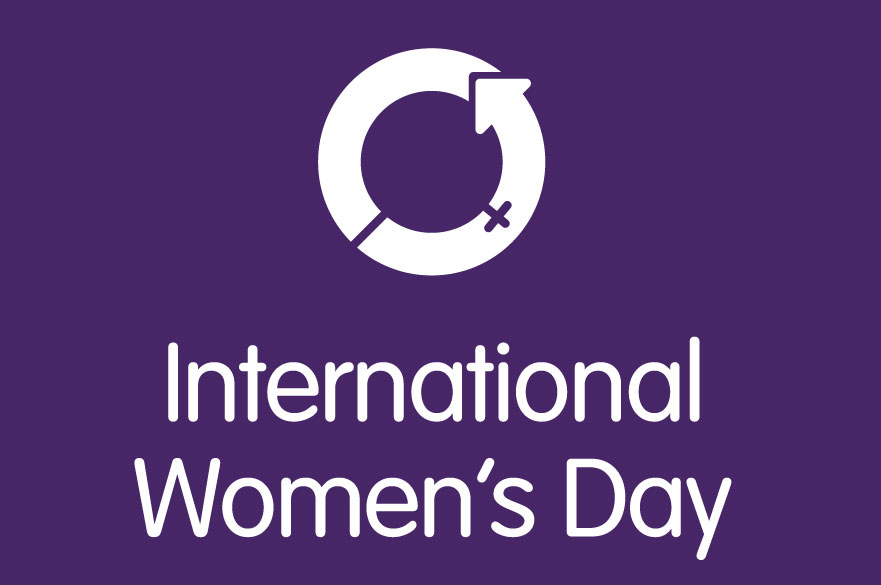
To celebrate International Women’s Day, we take a look back over the past 12 months and highlight some of the women we’ve interviewed and featured, and who’ve written about their research on AIhub.
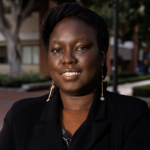 Elizabeth Ondula is an Electrical Engineer from the Technical University of Kenya and is currently a PhD student of Computer Science at USC. She is a member of the Autonomous Networks Research Group, and co-organizes a bi-weekly reinforcement learning group, SUITERS-RL. Prior to academia, she had roles as a Software Engineer at IBM Research in Kenya, Head of Product Development of Brave Venture Labs and Co-lead of Hardware Research at iHub Nairobi.
Elizabeth Ondula is an Electrical Engineer from the Technical University of Kenya and is currently a PhD student of Computer Science at USC. She is a member of the Autonomous Networks Research Group, and co-organizes a bi-weekly reinforcement learning group, SUITERS-RL. Prior to academia, she had roles as a Software Engineer at IBM Research in Kenya, Head of Product Development of Brave Venture Labs and Co-lead of Hardware Research at iHub Nairobi.
We interviewed Elizabeth as part of our series featuring the AAAI Doctoral Consortium participants. She told us about her work applying reinforcement learning to different domains, including public health and sustainable configurations of farming land.
 Fiona Anting Tan is a PhD student at the National University of Singapore and a recipient of the President’s Graduate Fellowship (PGF). Her research interests span natural language processing and reasoning, with a focus on extracting causal relationships from text for various applications. She has had multiple research internships and attachments with companies like Amazon, American Express, Panasonic and Changi Airport Group. She holds a BSc in Econometrics and Mathematical Economics from the London School of Economics and Political Science.
Fiona Anting Tan is a PhD student at the National University of Singapore and a recipient of the President’s Graduate Fellowship (PGF). Her research interests span natural language processing and reasoning, with a focus on extracting causal relationships from text for various applications. She has had multiple research internships and attachments with companies like Amazon, American Express, Panasonic and Changi Airport Group. She holds a BSc in Econometrics and Mathematical Economics from the London School of Economics and Political Science.
Fiona is also an AAAI Doctoral Consortium participant and we chatted to her about her work researching causal relations in text.
 Bo Li is an associate professor in the Department of Computer Science at the University of Chicago. She is the recipient of a number of awards, including the IJCAI Computers and Thought Award, Alfred P. Sloan Research Fellowship, AI’s 10 to Watch, NSF CAREER Award, MIT Technology Review TR-35 Award, and the Dean’s Award for Excellence in Research. She has also won best paper awards at several top machine learning and security conferences. Her research focuses on both theoretical and practical aspects of trustworthy machine learning, which is at the intersection of machine learning, security, privacy, and game theory.
Bo Li is an associate professor in the Department of Computer Science at the University of Chicago. She is the recipient of a number of awards, including the IJCAI Computers and Thought Award, Alfred P. Sloan Research Fellowship, AI’s 10 to Watch, NSF CAREER Award, MIT Technology Review TR-35 Award, and the Dean’s Award for Excellence in Research. She has also won best paper awards at several top machine learning and security conferences. Her research focuses on both theoretical and practical aspects of trustworthy machine learning, which is at the intersection of machine learning, security, privacy, and game theory.
Bo and colleagues won an outstanding datasets and benchmark track award at NeurIPS 2023 for their work DecodingTrust: A Comprehensive Assessment of Trustworthiness in GPT Models. In this interview, Bo told us about the research, the team’s methodology, and key findings.
 Paula Feldman is a Biomedical Engineer from Universidad Nacional de Tucumán, and is currently a PhD candidate at Universidad Torcuato Di Tella with a scholarship from the National Research Council (CONICET).
Paula Feldman is a Biomedical Engineer from Universidad Nacional de Tucumán, and is currently a PhD candidate at Universidad Torcuato Di Tella with a scholarship from the National Research Council (CONICET).
In the paper VesselVAE: Recursive Variational Autoencoders for 3D Blood Vessel Synthesis, Paula and colleagues presented a data-driven generative framework for synthesizing blood vessel 3D geometry. We interviewed Paula about this work, the methodology, and why this is such an interesting area for study.
 Xuan Liu is currently a Professor in the College of Computer Science and Electronic Engineering at Hunan University, China. She received a MSc from National University of Defense Technology, and a PhD from Hong Kong Polytechnic University. Her research interests include multi-agent reinforcement learning and its applications, and Internet of Things.
Xuan Liu is currently a Professor in the College of Computer Science and Electronic Engineering at Hunan University, China. She received a MSc from National University of Defense Technology, and a PhD from Hong Kong Polytechnic University. Her research interests include multi-agent reinforcement learning and its applications, and Internet of Things.
For their paper Selective Learning for Sample-Efficient Training in Multi-Agent Sparse Reward Tasks , Xuan and colleagues won an outstanding paper award at the 26th European Conference on Artificial Intelligence (ECAI 2023). In this interview, Xuan tells us more about the work.
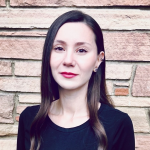 Aylin Caliskan is an Assistant Professor at the University of Washington Information School and an Adjunct Assistant Professor at the Paul G. Allen School of Computer Science and Engineering. Aylin’s research interests lie in AI ethics, AI bias, computer vision, natural language processing, and machine learning. As AI is co-evolving with society, her goal is to ensure that AI is developed and deployed responsibly, with consideration given to societal implications.
Aylin Caliskan is an Assistant Professor at the University of Washington Information School and an Adjunct Assistant Professor at the Paul G. Allen School of Computer Science and Engineering. Aylin’s research interests lie in AI ethics, AI bias, computer vision, natural language processing, and machine learning. As AI is co-evolving with society, her goal is to ensure that AI is developed and deployed responsibly, with consideration given to societal implications.
AIhub Ambassador Andrea Rafai caught up with Aylin at IJCAI 2023 and found out about her research.
 Mara Graziani is a postdoctoral researcher at IBM Research Europe and at HES-SO Valais. She holds a PhD in Computer Science from the University of Geneva and a MPhil in Machine Learning from the University of Cambridge (UK). Her research focuses on developing interpretable deep learning methods to support and accelerate scientific discovery. Her dissertation was awarded the IEEE Technical Committee on Computational Life Sciences PhD Thesis Award in 2021.
Mara Graziani is a postdoctoral researcher at IBM Research Europe and at HES-SO Valais. She holds a PhD in Computer Science from the University of Geneva and a MPhil in Machine Learning from the University of Cambridge (UK). Her research focuses on developing interpretable deep learning methods to support and accelerate scientific discovery. Her dissertation was awarded the IEEE Technical Committee on Computational Life Sciences PhD Thesis Award in 2021.
We interviewed Mara about her work understanding how representations are organized by intermediate layers of complex deep learning models.
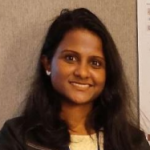 Chathurangi Shyalika is a PhD student at the Artificial Intelligence Institute, University of South Carolina. Her research interests include time-series analysis and neurosymbolic AI.
Chathurangi Shyalika is a PhD student at the Artificial Intelligence Institute, University of South Carolina. Her research interests include time-series analysis and neurosymbolic AI.
In this blog post, Chathurangi wrote about work reviewing rare event prediction literature along four dimensions: rare event data, data processing, algorithms, and evaluation.
 Nadia Ady is a postdoctoral researcher at Aalto University. Nadia’s current research interests are in artificial intelligence, specifically in the possibilities for imbuing machines with traits of creativity and curiosity. Nadia was awarded a PhD in 2023 from the University of Alberta in the Department of Computing Science.
Nadia Ady is a postdoctoral researcher at Aalto University. Nadia’s current research interests are in artificial intelligence, specifically in the possibilities for imbuing machines with traits of creativity and curiosity. Nadia was awarded a PhD in 2023 from the University of Alberta in the Department of Computing Science.
One of Nadia’s projects was in collaboration with Faun Rice, exploring where AI researchers find inspiration and ideas about human intelligence and what approaches they use to translate ideas from the disciplines that study human intelligence (e.g. social sciences, psychology, neuroscience) for work in AI. We spoke to Nadia and Faun to find out more.
 Faun Rice is a social researcher and writer based in Vancouver, BC. Trained in anthropology and sociology at the University of Alberta, Faun began her career as a language revitalization researcher and then a museum researcher. Today she studies the intersection between technology and society, and also writes and edits non-fiction and academic text.
Faun Rice is a social researcher and writer based in Vancouver, BC. Trained in anthropology and sociology at the University of Alberta, Faun began her career as a language revitalization researcher and then a museum researcher. Today she studies the intersection between technology and society, and also writes and edits non-fiction and academic text.
As mentioned about, Faun worked with Nadia Ady on a project exploring where AI researchers find inspiration and ideas about human intelligence. Here is our interview with them both.
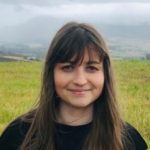 Leanne Nortje is currently doing a PhD which combines speech processing and computer vision in weakly supervised settings by using small amounts of labelled data. The inspiration behind her models is how efficiently children learn language from very few examples. In 2018 she received a BEng Electrical and Electronic Engineering degree cum laude from Stellenbosch University, and in 2020 completed her MEng in Electronic Engineering.
Leanne Nortje is currently doing a PhD which combines speech processing and computer vision in weakly supervised settings by using small amounts of labelled data. The inspiration behind her models is how efficiently children learn language from very few examples. In 2018 she received a BEng Electrical and Electronic Engineering degree cum laude from Stellenbosch University, and in 2020 completed her MEng in Electronic Engineering.
In this interview, Leanne told us about visually grounded few-shot word learning in low-resource settings.
 Fanglan Chen is a PhD student in the Spatial Lab, advised by Dr Chang-Tien Lu, at Virginia Tech. Her research focuses on graph neural networks, spatio-temporal data mining, and urban computing. She holds a MS in Computer Science and a MURP in Urban Planning from Virginia Tech. She is also a graduate student researcher at Virginia Tech’s Sanghani Center for Artificial Intelligence and Data Analytics.
Fanglan Chen is a PhD student in the Spatial Lab, advised by Dr Chang-Tien Lu, at Virginia Tech. Her research focuses on graph neural networks, spatio-temporal data mining, and urban computing. She holds a MS in Computer Science and a MURP in Urban Planning from Virginia Tech. She is also a graduate student researcher at Virginia Tech’s Sanghani Center for Artificial Intelligence and Data Analytics.
Fanglan told us about work presented at EAAI 2023 on exploring the feasibility of automatically generating school redistricting plans.
 Elaine Nsoesie is an Associate Professor in the Department of Global Health at the Boston University School of Public Health. She is an internationally recognized data scientist and a leading voice on the use of data and technology to advance health equity. She is a Data Science Faculty Fellow and was a Founding Faculty of the Boston University Faculty of Computing and Data Sciences.
Elaine Nsoesie is an Associate Professor in the Department of Global Health at the Boston University School of Public Health. She is an internationally recognized data scientist and a leading voice on the use of data and technology to advance health equity. She is a Data Science Faculty Fellow and was a Founding Faculty of the Boston University Faculty of Computing and Data Sciences.
Elaine was an invited speaker at ICLR 2023, and we covered her talk here.
 Hasra Dodampegama is a PhD candidate in the School of Computer Science at the University of Birmingham, UK. She earned her BSc in Engineering from the University of Peradeniya, Sri Lanka. Her research interests include knowledge representation and reasoning, communication, and learning in the context of an agent collaborating with other agents without any prior coordination.
Hasra Dodampegama is a PhD candidate in the School of Computer Science at the University of Birmingham, UK. She earned her BSc in Engineering from the University of Peradeniya, Sri Lanka. Her research interests include knowledge representation and reasoning, communication, and learning in the context of an agent collaborating with other agents without any prior coordination.
She wrote about work formulating ad-hoc teamwork as a joint reasoning and learning problem.
 Martine Barons is Director of the Applied Statistics and Risk Unit, University of Warwick. She retrained as an academic following a career in accountancy and a period full time at home bringing up children. She brings her life experience to enable academia to work effectively with business, industry and government.
Martine Barons is Director of the Applied Statistics and Risk Unit, University of Warwick. She retrained as an academic following a career in accountancy and a period full time at home bringing up children. She brings her life experience to enable academia to work effectively with business, industry and government.
In this blog post, Martine wrote about her work developing a Bayesian network-based decision support system for comparing pollination strategies using multi-attribute utility theory.
 Eva Pachetti is a biomedical engineer and a PhD student in Information Engineering at the University of Pisa. She is also a graduate fellow at the Institute of Information Science and Technologies of the National Research Council of Italy. Her research focuses on developing Deep Learning models for medical imaging, especially meta-learning methods for few-shot learning.
Eva Pachetti is a biomedical engineer and a PhD student in Information Engineering at the University of Pisa. She is also a graduate fellow at the Institute of Information Science and Technologies of the National Research Council of Italy. Her research focuses on developing Deep Learning models for medical imaging, especially meta-learning methods for few-shot learning.
In work with Sara Colantonio, Eva investigated the state of the art of few-shot learning in medical imaging. They wrote about this work in this blog post,
 Sara Colantonio is a senior researcher at the Institute of Information Science and Technologies of the National Research Council of Italy. Her research interests comprise artificial intelligence, machine learning, assistive technologies and trustworthy AI. She leads the ISTI-CNR team in the EU H2020 ProCAncer-I project, EU HE EUCAIM and FAITH, in the field of artificial intelligence in medical imaging. She has worked on numerous national and international projects, earning recognition as one of the 40 Top Transformers in health in 2016 for the EU FP7 project SEMEOTICONS.
Sara Colantonio is a senior researcher at the Institute of Information Science and Technologies of the National Research Council of Italy. Her research interests comprise artificial intelligence, machine learning, assistive technologies and trustworthy AI. She leads the ISTI-CNR team in the EU H2020 ProCAncer-I project, EU HE EUCAIM and FAITH, in the field of artificial intelligence in medical imaging. She has worked on numerous national and international projects, earning recognition as one of the 40 Top Transformers in health in 2016 for the EU FP7 project SEMEOTICONS.
As mentioned above, Sara co-authored this blog post about few-shot learning for medical imaging with Eva Pachetti.
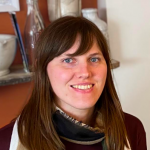 Erica van der Sar is a PhD student at the Vrije Universiteit in Amsterdam, specializing in the application of reinforcement learning and optimization techniques to enhance power systems reliability and robustness. Her interests lie in the application of mathematical optimization techniques to practical problems.
Erica van der Sar is a PhD student at the Vrije Universiteit in Amsterdam, specializing in the application of reinforcement learning and optimization techniques to enhance power systems reliability and robustness. Her interests lie in the application of mathematical optimization techniques to practical problems.
Erika wrote about her work on power grid control with multi-agent reinforcement learning.
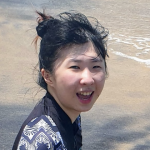 Wen-Chi Yang is an AI researcher specializing in mathematical guarantees for AI safety. Her work focuses on mitigating safety-related side effects in machine learning algorithms and exploring safe learning methods through leveraging background knowledge. She holds a PhD in Computer Science from KU Leuven.
Wen-Chi Yang is an AI researcher specializing in mathematical guarantees for AI safety. Her work focuses on mitigating safety-related side effects in machine learning algorithms and exploring safe learning methods through leveraging background knowledge. She holds a PhD in Computer Science from KU Leuven.
In this blog post, Wen-Chi wrote about work that won her, and co-authors, a distinguished paper award at IJCAI 2023.
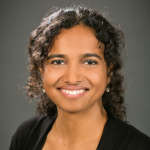 Ramya Korlakai Vinayak is an assistant professor in the Department of ECE and affiliated faculty in the Department of Computer Science and the Department of Statistics at the University of Wisconsin-Madison. Her research interests span the areas of machine learning, statistical inference, and crowdsourcing.
Ramya Korlakai Vinayak is an assistant professor in the Department of ECE and affiliated faculty in the Department of Computer Science and the Department of Statistics at the University of Wisconsin-Madison. Her research interests span the areas of machine learning, statistical inference, and crowdsourcing.
In this blog post, Ramya and colleagues wrote about their work developing an active crowdclustering algorithm for labelling datasets.
 Marianne Defresne is a PhD candidate in artificial intelligence at the University of Toulouse in France, in the labs TBI and MIAT. Her studies are supported by INSA Toulouse, INRAE, EUR Bioeco, and ANITI. Her research focuses on hybridizing deep learning and automated reasoning, and applying it to computational biology to design proteins.
Marianne Defresne is a PhD candidate in artificial intelligence at the University of Toulouse in France, in the labs TBI and MIAT. Her studies are supported by INSA Toulouse, INRAE, EUR Bioeco, and ANITI. Her research focuses on hybridizing deep learning and automated reasoning, and applying it to computational biology to design proteins.
Read Marianne’s blog post about her work on scalable coupling of deep learning with logical reasoning.
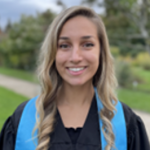 Lauren Nicole DeLong is a PhD student in the Artificial Intelligence and its Applications Institute at the University of Edinburgh School of Informatics. She aims to demonstrate how the novel properties of neurosymbolic AI are well-suited toward handling the unique challenges associated with biomedical data.
Lauren Nicole DeLong is a PhD student in the Artificial Intelligence and its Applications Institute at the University of Edinburgh School of Informatics. She aims to demonstrate how the novel properties of neurosymbolic AI are well-suited toward handling the unique challenges associated with biomedical data.
With fellow PhD student Ramon Fernández Mir, Lauren wrote this blog post about their survey of neurosymbolic AI for reasoning on graph structures.
 Sophie Henning is a PhD student at Bosch Center for Artificial Intelligence and LMU Munich, in Germany. Her research focuses on uncertainty in Natural Language Processing, addressing both linguistic phenomena such as modal verbs that express uncertainty and uncertainty that is tied to deep-learning based machine learning models. She holds a BSc in Computational Linguistics and an MSc in Computer Science from Saarland University, Germany.
Sophie Henning is a PhD student at Bosch Center for Artificial Intelligence and LMU Munich, in Germany. Her research focuses on uncertainty in Natural Language Processing, addressing both linguistic phenomena such as modal verbs that express uncertainty and uncertainty that is tied to deep-learning based machine learning models. She holds a BSc in Computational Linguistics and an MSc in Computer Science from Saarland University, Germany.
With colleague Annemarie Friedrich, Sophie gave an overview of class imbalance methods for deep learning-based NLP.
 Annemarie Friedrich is a University Professor at the Faculty of Applied Computer Science at the University of Augsburg in Germany. Before that, she worked as a Senior Expert for Natural Language Processing at the Bosch Center for Artificial Intelligence. She was a PostDoc at LMU Munich and holds a Ph.D. in Computational Linguistics from Saarland University. She is currently vice president of the German Society for Computational Linguistics and Language Technology. Her research interests include: computational syntax and semantics, discourse processing, text mining, information extraction, linguistic annotation, and deep learning.
Annemarie Friedrich is a University Professor at the Faculty of Applied Computer Science at the University of Augsburg in Germany. Before that, she worked as a Senior Expert for Natural Language Processing at the Bosch Center for Artificial Intelligence. She was a PostDoc at LMU Munich and holds a Ph.D. in Computational Linguistics from Saarland University. She is currently vice president of the German Society for Computational Linguistics and Language Technology. Her research interests include: computational syntax and semantics, discourse processing, text mining, information extraction, linguistic annotation, and deep learning.
As noted above, Annemarie co-authored this piece on class imbalance methods with Sophie Henning.
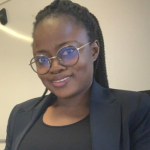 Angelique Yameogo is studying for a PhD at the University of South Brittany, France. Her thesis is focused on fake news analysis using data science techniques. She has worked with several companies in Burkina Faso as an artificial intelligence engineer and mobile developer.
Angelique Yameogo is studying for a PhD at the University of South Brittany, France. Her thesis is focused on fake news analysis using data science techniques. She has worked with several companies in Burkina Faso as an artificial intelligence engineer and mobile developer.
As part of their DataLike project, Ndane Ndazhaga and Isabella Bicalho-Frazeto asked Angelique about her research, and her career so far.
 Ulrike Kuhl is a postdoctoral researcher at Bielefeld University, affiliated with the CoR-Lab Research Institute for Cognition and Robotics and overseeing the Data-NInJA research training group supporting junior researchers working on trustworthy AI. As a cognitive scientist with a background in neuroscience, she holds a PhD from the Max Planck Institute for Human Cognitive and Brain Sciences in Leipzig. With her research, she aspires to contribute to a more comprehensive understanding of the human factors involved in explainable AI, ultimately fostering the development of more user-centered and actionable explanations for automated systems.
Ulrike Kuhl is a postdoctoral researcher at Bielefeld University, affiliated with the CoR-Lab Research Institute for Cognition and Robotics and overseeing the Data-NInJA research training group supporting junior researchers working on trustworthy AI. As a cognitive scientist with a background in neuroscience, she holds a PhD from the Max Planck Institute for Human Cognitive and Brain Sciences in Leipzig. With her research, she aspires to contribute to a more comprehensive understanding of the human factors involved in explainable AI, ultimately fostering the development of more user-centered and actionable explanations for automated systems.
We interviewed Ulrike about her work investigating counterfactual explanations in explainable artificial intelligence.










